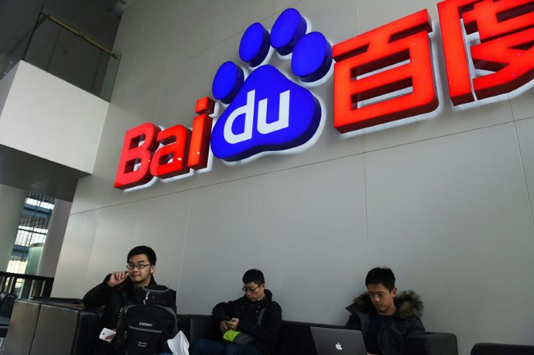BEIJING, Feb 28, 2020 (BSS/AFP) – Internet search giant Baidu has warned
the deadly coronavirus outbreak could drive revenues down in the first
quarter, as it reported steady annual revenue growth.
The Beijing-based group has forecast a plunge of between five percent and
13 percent due to the economic uncertainty surrounding the new virus, which
is rapidly spreading around the world.
It is forecasting revenues between 21.0 billion yuan ($3.0 billion) and
22.9 billion yuan in the first three months of the year.
“The coronavirus situation in China is evolving, and business visibility is
very limited,” the firm said in its statement, adding that the outlook was
“subject to substantial uncertainty”.
The group’s total revenues for the year ended December 31 rose five percent
to 107.4 billion yuan ($15.43 billion), with income during October-December
rising six percent on-year.
Considered China’s answer to Google, Baidu has traditionally relied on
advertising for much of its revenue.
But the ad sector is particularly vulnerable to economic slowdowns, and
Baidu has had to battle with popular start-ups such as Bytedance.
Baidu’s online marketing revenues were 78.1 billion yuan for the year — a
drop of five percent.
Chairman Robin Li said the company had made “tremendous progress in
strengthening Baidu’s mobile ecosystem”.
The firm has also been spending huge sums trying to reposition itself as a
leader in advanced technologies such as artificial intelligence (AI) and
driverless cars.
Revenue growth was driven largely by strong growth in cloud services, smart
devices and its Netflix-style platform iQIYI.
Nasdaq-listed iQIYI added 19.5 million new subscribers over the year, and
projected revenue gain of 2-8 percent this quarter.
The coronavirus outbreak has hit businesses across the country and beyond.
But China’s streaming giants have seen an unexpected boost from millions of
people stuck at home, and shares surged in January for the likes of iQiyi.
Baidu said it had “devoted significant efforts” to fighting the
coronavirus, including facial recognition and AI technology to power
screening systems that can remotely measure up to 200 people a minute.



